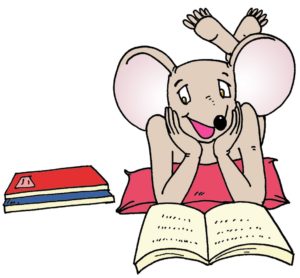The donation of May 2017 goes to:
Traditionally, books have been rare in Laos. The number of children who go to school is slowly but steadily increasing, yet many children have never read a book outside of school textbooks. Few Lao people think that reading can be fun, can add to their education, or will provide information to improve their quality of life.
Indeed, in the past, it couldn’t do any of those things. Very few books were published in Laos, and they never reached the villages where most people lived.
Big Brother Mouse is changing that. This publishing project was started by a retired American publisher working with several bright and dedicated Laotian college students. Their staff now includes high school students and recent college graduates. Together, they look at the books that children have enjoyed most anywhere in the world. They think about what underlying concepts made those books successful. Then they ask if those concepts could be used in Laos, with new Lao content and pictures.
They published their first books in 2006. Some are just in Lao; others are in both Lao and English, making them useful not only for their primary audience – Lao children – but also for people of any age, who speak either English or Lao and are learning the other language.
What’s different about Big Brother Mouse?
Big Brother Mouse is not an NGO. It is a not-for-profit, Lao-owned project, with a Lao staff. They’re helping young Laotians develop new skills, as they build the foundations to become a self-sufficient Lao publishing house.
They’re not building dependency. When they started, we gave books to schools free. As the Lao economy grows, we’re changing. Since 2014 they ask that most villages pay part of the cost of the reading program in their school.
They evaluate the actual impact of what they do. These evaluations show that their books do improve reading skills; and have helped them strengthen their program.
When they have a rural book party or hold an art contest at a school, young Lao men and women lead the activities and make the presentations. Children discover that books can be fun. They also envision new possibilities for their own lives.
They are based in Laos. All planning and decisions are made there in Laos, based on and often adapting to the conditions they face. All of their paid staff are Lao.
They’re getting things done. That’s not easy, in a country where infrastructure is still often lacking.
 Big Brother Mouse
Big Brother Mouse